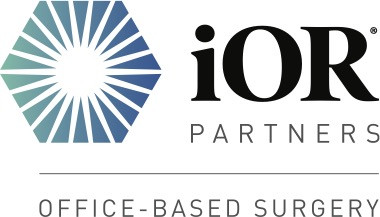
KANSAS CITY, Mo., June 27, 2023 (Newswire.com) - iOR Partners, the pioneer in office-based surgery (OBS) in the field of ophthalmology, announced the publication of, "Safety of Office-Based Lens Surgery: A U.S. Multicenter Study," in the Journal of Cataract & Refractive Surgery. The study was led by Lance J. Kugler, MD, Director of Kugler Vision, Omaha, NE, and Medical Director of iOR Partners.
The study evaluated case records of more than 18,000 consecutive patients who underwent office-based lens surgery for visually significant cataract, refractive lens exchange (RLE), or phakic IOL implantation, at 36 participating U.S. sites, and found that office-based lens surgery can be performed safely, with adverse event rates similar to or lower than those in the published literature.
Outcome measures included the assessment of intra- and postoperative complications such as the incidence of iritis, corneal edema, endophthalmitis, and unplanned vitrectomy. The rates of postoperative endophthalmitis, toxic anterior segment syndrome (TASS), and corneal edema were 0.028%, 0.022%, and 0.027%, respectively. Unplanned vitrectomy was performed in 0.177% of patients. "Our study demonstrated that the safety profile of office-based lens surgery either matches or exceeds the literature-reported values of adverse events documented for modern cataract surgery," said Dr. Kugler.
Office-based lens surgery centers are not to be confused with in-office procedure rooms. Rather, they are nationally accredited operating rooms located within a practice, rather than in an Ambulatory Surgery Center (ASC). "Trends suggest a shift from ASCs to office-based surgery (OBS) suites as the new normal for ophthalmic surgery over the next 10 years. As eye surgeons consider modifying their practice paradigm to include OBS, they want to ensure it is safe. This study provides surgeons with the safety data and transparency that they need," said iOR CEO James Williams.
In the study, patient selection for office-based lens surgery was based on the American Society of Anesthesiologists (ASA) physical status classification system. Patients classified as ASA I and II were deemed adequate for surgery at an office-based facility. Patients classified as ASA III were selected for surgery on a case-by-case basis according to the physician's discretion. Patients with an ASA IV classification were deemed inappropriate for office-based surgery. While many of the cases in the study population were younger patients undergoing refractive lens exchange (RLE), more than half (54%) were Medicare-age (65+) and the majority had comorbidities typical of any cataract surgery population.
"Increasingly, ophthalmic surgeons are realizing that OBS can increase convenience and facilitate more consistent control of staff, equipment, and scheduling," said Daniel S. Durrie, MD, founder of Durrie Vision, Overland Park, KS, and Chairman of the Board of iOR Partners. "Now, with the addition of iOR's Real World Data (iRWD) registry, surgeons who are considering OBS can make a fully informed decision."
About iOR Partners
iOR Partners, LLC is paving the way for the future of cataract surgery with innovative, office-based surgery suites. iOR surgical suites provide cataract surgeons the ability to offer more personalized care in a safe and comfortable surgical environment. The company's turnkey solution includes assistance with space build-out, acquiring surgical equipment, staff training, insurance acquisition, accreditation, and compliance services. iOR Partners is the only company dedicated to ophthalmic office-based surgery and partners with practices nationwide.
Contact Information:Deb Holliday
President, Holliday Communications, Inc.
[email protected]
412-877-4519
Original Source: Ophthalmic Office-Based Surgery Safety Study Published in Peer Review Journal